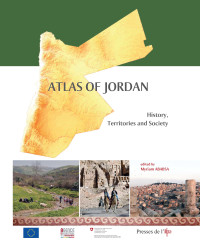Algeria -Country Narrative .Arabic
Algeria -Country Narrative .Arabic
The (manufactured) controversy over South Africa’s Expropriation Act
South Africa's Expropriation Act of 2024, is at the centre of international controversy following lobbying by Afriforum and punitive actions by US President Donald Trump.
KBL Spotlight on mining in Southern Africa Feb-March 2025
In the past two months Knowledgebase.land (KBL) has carried links to news highlighting recent developments in the region's mining sector across five countries. Our analysis covers recent reporting on extraction activities, economic impacts, and policy changes from Zambia to South Africa.
Resilience and Resistance: Indigenous, Afro-descendant, and Local Community Women's Statutory Rights to Community Forests
This report provides a critical update to the 2017 Rights and Resources Initiative (RRI) analysis Power and Potential. It evaluates the extent to which national laws, as of 2024, recognize the specific community forest rights of Indigenous, Afro-descendant, and local community women.
The Carbon Rights of Indigenous Peoples, Afro-descendant Peoples, and Local Communities in Tropical and Subtropical Lands and Forests
Since UNFCCC CoP29 in November 2024 and the nominal approval of Article 6.4 of the Paris Agreement, the regulatory landscape has been rapidly changing.
Promouvoir une mobilisation citoyenne et une gouvernance partagée des forêts
Le département de Médina Yoro Foulah, situé en Haute-Casamance au Sénégal, est touché par la déforestation, liée à l’avancée du front agricole et à l’exploitation forestière illégale du bois de rose. Cette situation est aggravée par la faiblesse des structures locales de gouvernance et le manque de transparence dans la gestion des ressources issues des forêts.
Are forest carbon projects in Africa green but mean?: A mixed-method analysis
Key Takeaways on Article 6 at COP29
A fully operational Article 6 offers countries a powerful tool to scale up mitigation efforts to achieve their Nationally Determined Contributions (NDCs). If implemented right, Article 6 will help channel much-needed climate finance – both public and private - to developing countries, enabling meaningful investments in mitigation activities. That said, the process does not end here.
Article 6 and Land Rights
Carbon projects often impact lands managed by communities with insecure or informal tenure rights, especially in Africa and Asia, where carbon markets are expanding rapidly. Nearly 80% of land managed by Indigenous Peoples and local communities in these regions lacks formal recognition.
Securing Indigenous Peoples and Local Communities’ Land Rights in the Voluntary Carbon Market
GLA believes it is crucial to collectively advance thinking, dialogue, and action on the role of land rights and tenure security to make the VCM and other nature-based markets equitable, efficient and sustainable.
Carbon rights in the context of jurisdictional REDD+: Tenure links and country-based legal solutions
- Clarity on who owns emissions reductions (ERs), including who is entitled to benefit from Reducing Emissions from Deforestation and forest Degradation, plus the sustainable management of forests, and the conservation and enhancement of forest carbon stocks (REDD+), is paramount to access different sources of forest climate finance.
- As most countries’ legislation does no










